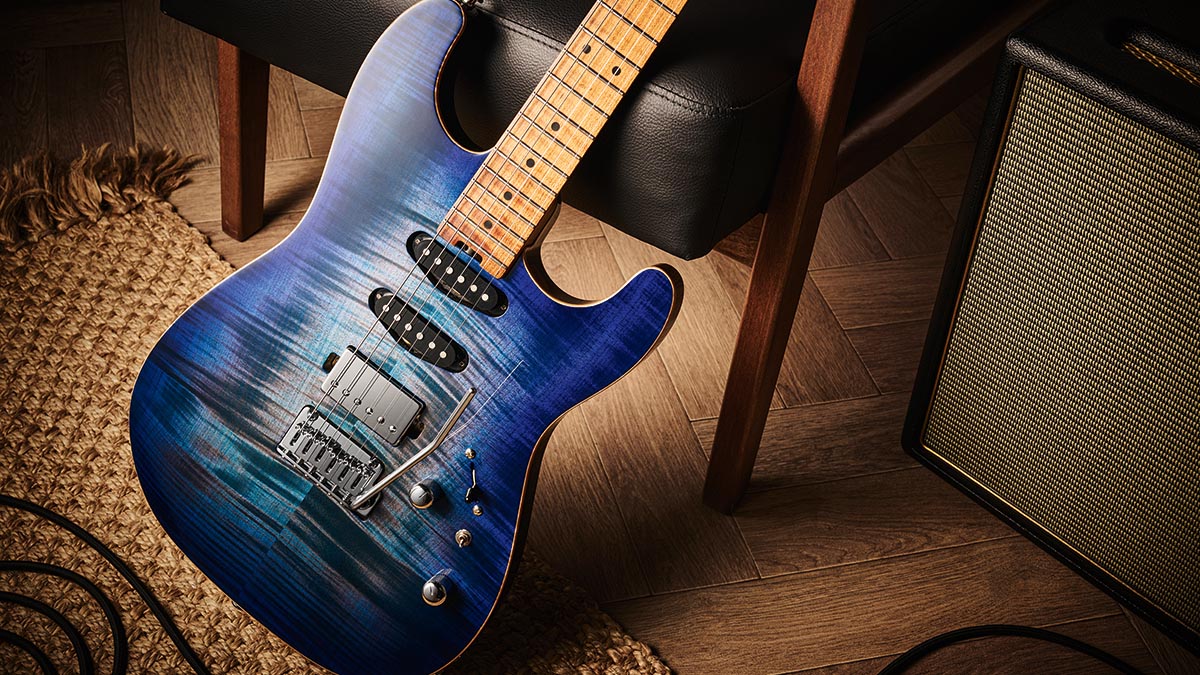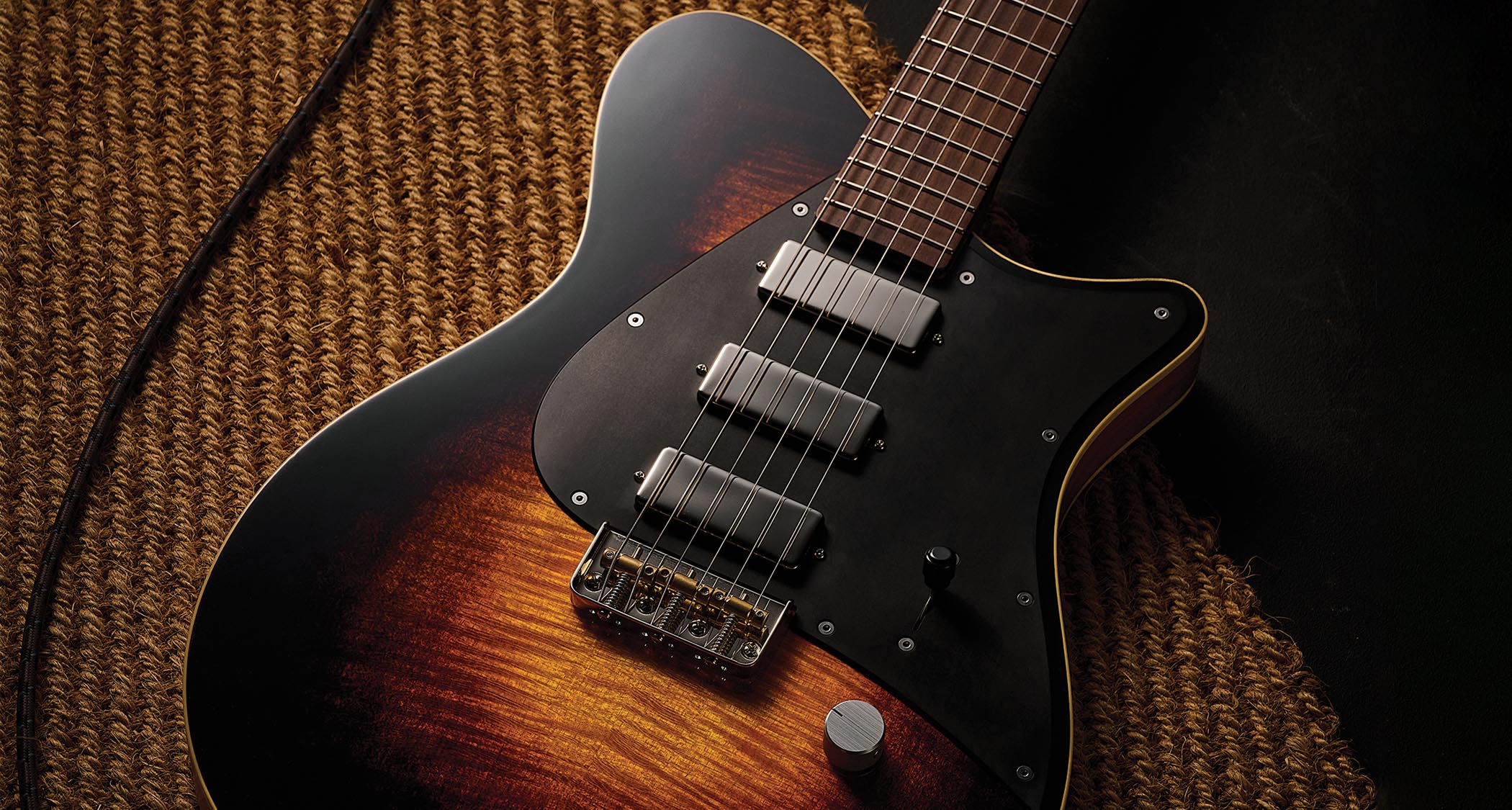Guitar World Verdict
It’s hard to find fault here, and while £2.5k ain’t cheap in anyone’s book you only need to check the prices of similar styles from USA makers such as Tom Anderson and Suhr to see that it’s very attractive.
Pros
- +
Crisp build and clean design.
- +
Excellent neck shape and feel.
- +
Top-class hardware with sounds to match.
- +
A very well turned out guitar!
Cons
- -
Derivative design that lacks the innovation and originality of previous Cream T models.
You can trust Guitar World
An increasing number of smaller guitar makers seem to be making their own pickups in-house these days, just like the big guns have always done. Pickup makers more rarely step into the dusty world of electric guitar making – and Cream T is one exception.
Although its production is quite limited, the guitars so far have been anything but. Along with pulling in big star names such as Billy F Gibbons, the company has been championing innovative pickup-swapping with both of its models so far: the flat-topped single-cut Aurora and the offset Crossfire, originally made by UK Guitar Builders and now by a new UK-based manufacturing partner.
The clean, crisp build has been retained with the Version 2 Aurora Custom and the Crossfire should be back shortly. In the meantime, the Cream T team, headed by Tim Lobley, has something new to share: the Polaris Custom.
Now, it doesn’t offer that pickup-swapping potential – the pickups load from the back of the guitar, which means a Strat-style vibrato with its rear-placed springs can’t be used, although we understand a hardtail version with pickup swapping will be available soon.
Nevertheless, the Polaris is impressive from the off. The HSS super-S has always been a journeyman guitar and the Polaris certainly keeps that flag flying. What it might lack in originality is made up for in craft and functionality. It even comes in a rather good Mono-style high-density carry bag aimed at the gigging musician, rather than the collector.
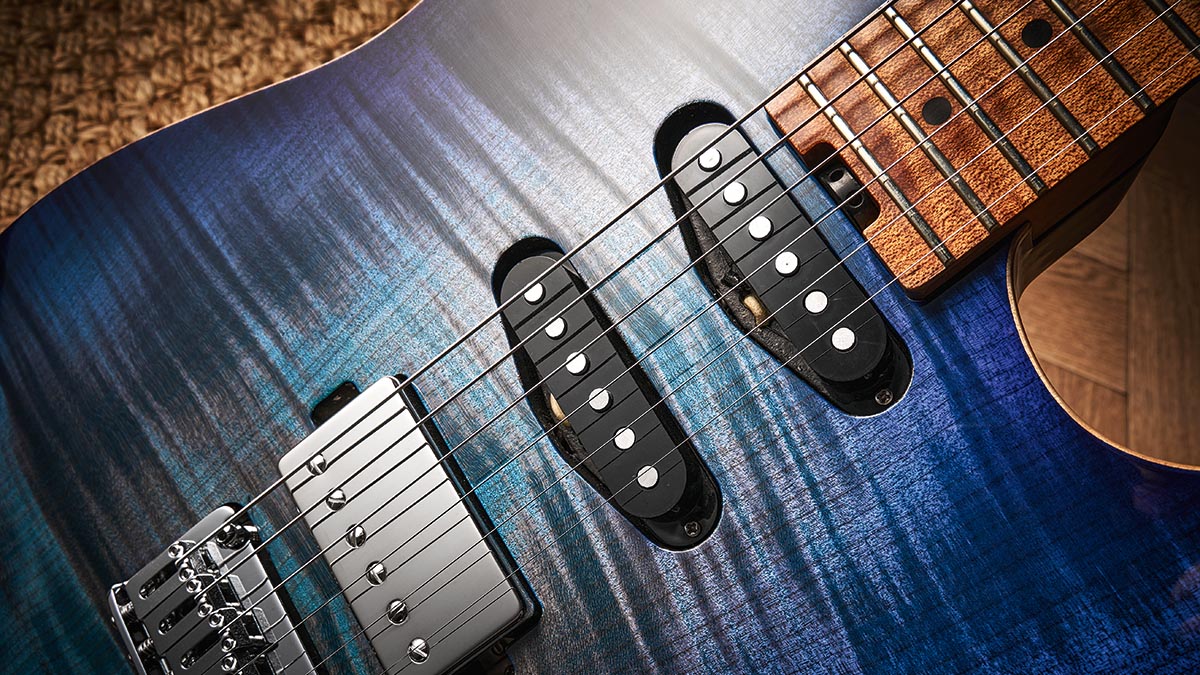
That impression is more than apparent as we pull out the guitar, which has a delectable weight of 3.21kg (7.1lb). Perfectly in tune and perfectly set up, you’re good to go from the off with little more than some string stretching. But, c’mon, it’s a £2.5k piece, so you shouldn’t be surprised.
That good weight is achieved by using solid obeche for the body topped with a AAA-grade centre-joined maple top, with natural edge ‘binding’ that’s approximately 6mm in thickness and ‘dropped’ (as the originator Tom Anderson calls it) over the forearm contour.
All the latest guitar news, interviews, lessons, reviews, deals and more, direct to your inbox!
Unlike some super-S designs, the outline retains the fuller (not thinned) horns of the Stratocaster; the bass-side horn is slightly thicker, if anything. The back has a deep vintage-style ribcage cut-out, too, while the heel is contoured and the textured aluminium neckplate – which follows the sloping curve of the heel – is nicely recessed, flush with the back surface and also features an engraved Cream T logo and serial number.
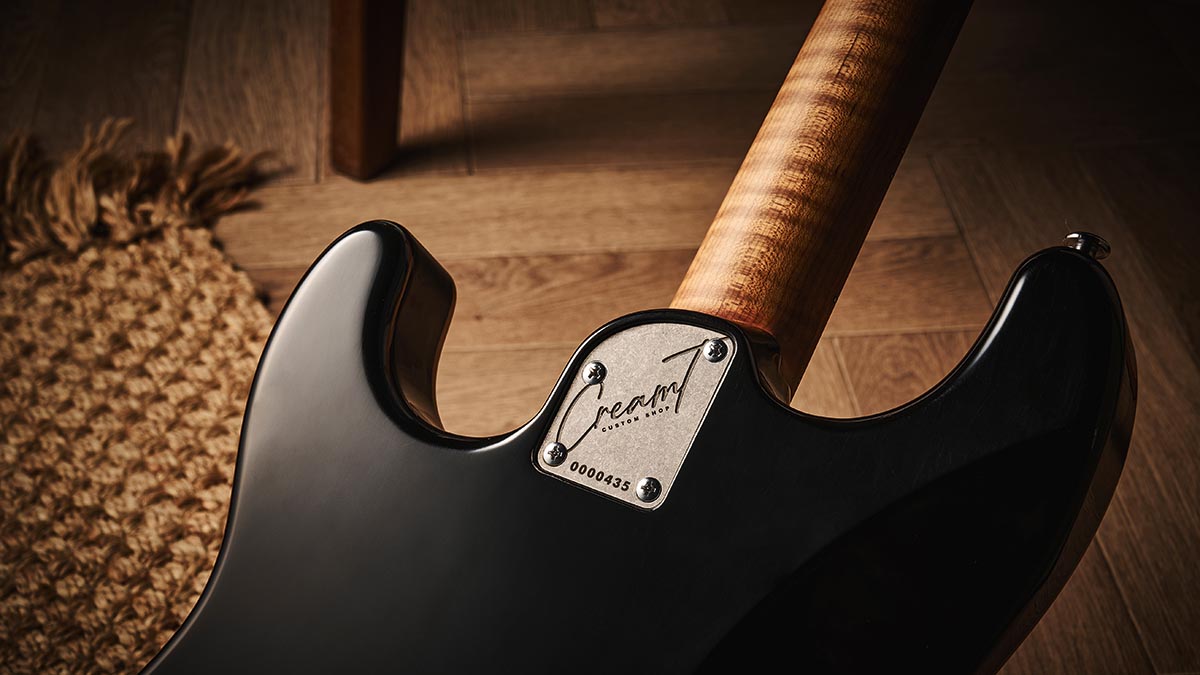
As we’ve seen with quite a few UK makers – Atkin, Seth Baccus, Patrick James Eggle and PJD, for example – the neck wood choice is roasted maple, quarter-sawn with a strong figure.
The finish is a satin acrylic; it feels almost like bare wood to the touch. And although we don’t get things like the graphite reinforcement and stainless-steel frets of the more progressive-style makers, we do get a nod in that direction with those glow-in-the dark Luminlay side dots.
Whether it’s the feel of the neck or these sounds alone, there’s a very appealing vintage-vibe going on here without the sometimes ear-wearing spike that some Strats can veer towards
Gotoh hardware is used throughout: rear-lock dual-height tuners and the steel Gotoh 510 two-post vibrato, with a die-cast block, which has a recess to maximise up-bend.
In keeping with its hot-rod roots, there’s no rear spring cavity cover, although the coverplate for the rear-mount controls is recessed. All three of the purpose-designed Cream T Polaris pickups direct-mount to the body, so there’s no need to have a scratchplate marring that figured maple.
Feel & Sounds
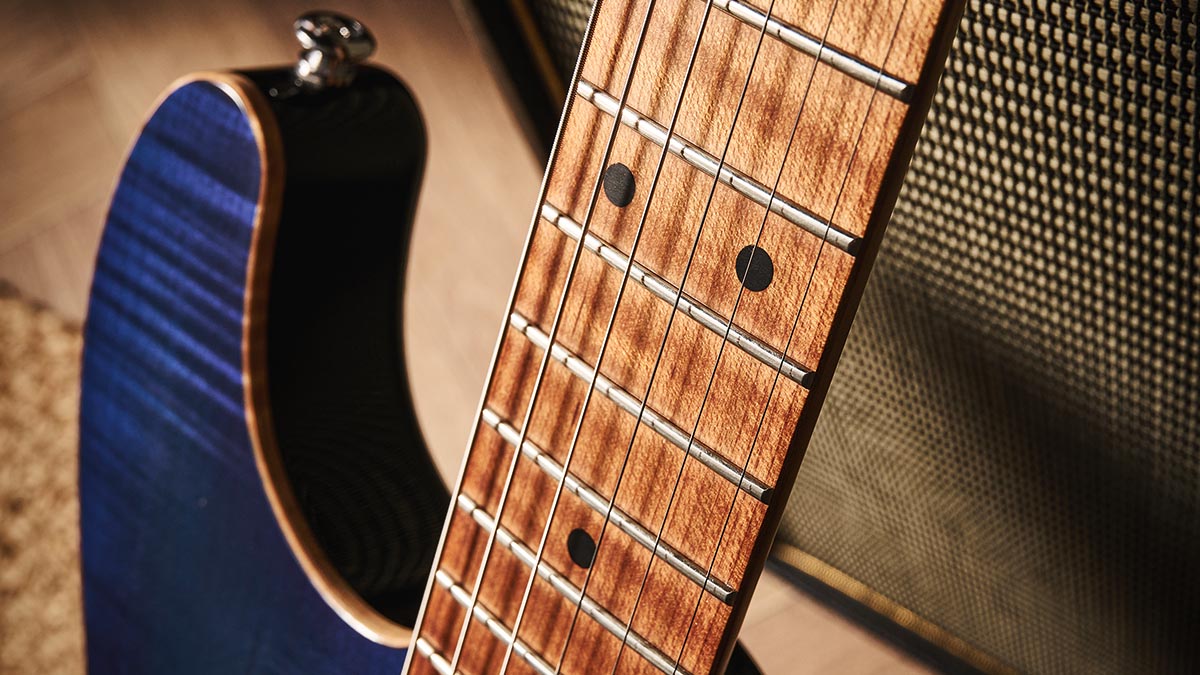
While the style is fairly generic and the Polaris comes across as very familiar, it is carefully considered. The fingerboard, for example, has a subtle compound radius that you probably wouldn’t notice, while the medium jumbo frets are perfectly installed and, unlike some, have good width and height (measured at approximately 2.6mm wide and 1.25mm high) without feeling over-big. The fret tangs are notched, too, so you don’t see the slots on the edges of the fingerboard.
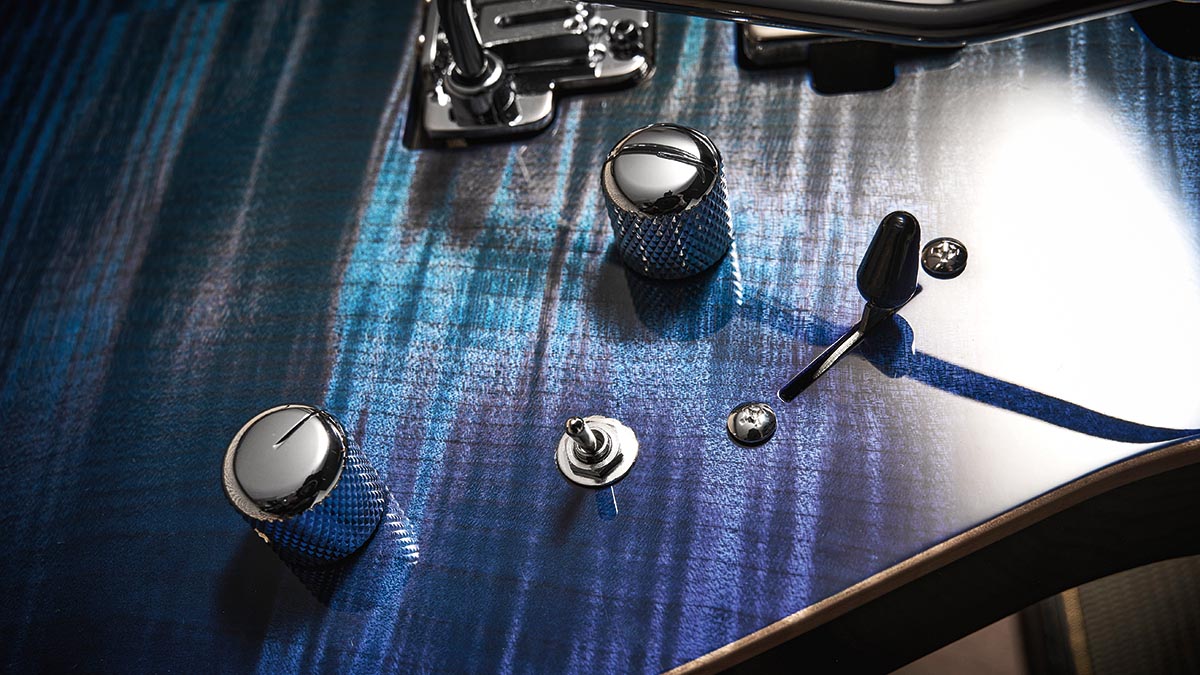
There’s no fancy name for the neck profile, just ‘medium C’, with a very Fender-y nut width and a depth of 21.9mm at the 1st fret and 23.2mm by the 12th. It’s a little deeper than Cream T’s earlier Crossfire model and, to be honest, we’d call it a medium-deep C. Either way, it’s superbly done.
As we mentioned, setup is spot on with some light relief and very standard string heights of 1.5mm on the high E, 1.8mm on the low E. And, of course, we have the truss rod adjustment at the body end of the neck – it’s very easy to tweak, though we didn’t touch it.
The Gotoh 510 vibrato is an industry standard and here it sits virtually flush with the body, although the rear recess means we still get a semi-tone lift on the high E. After basic string stretching the stability and return to pitch is very good.
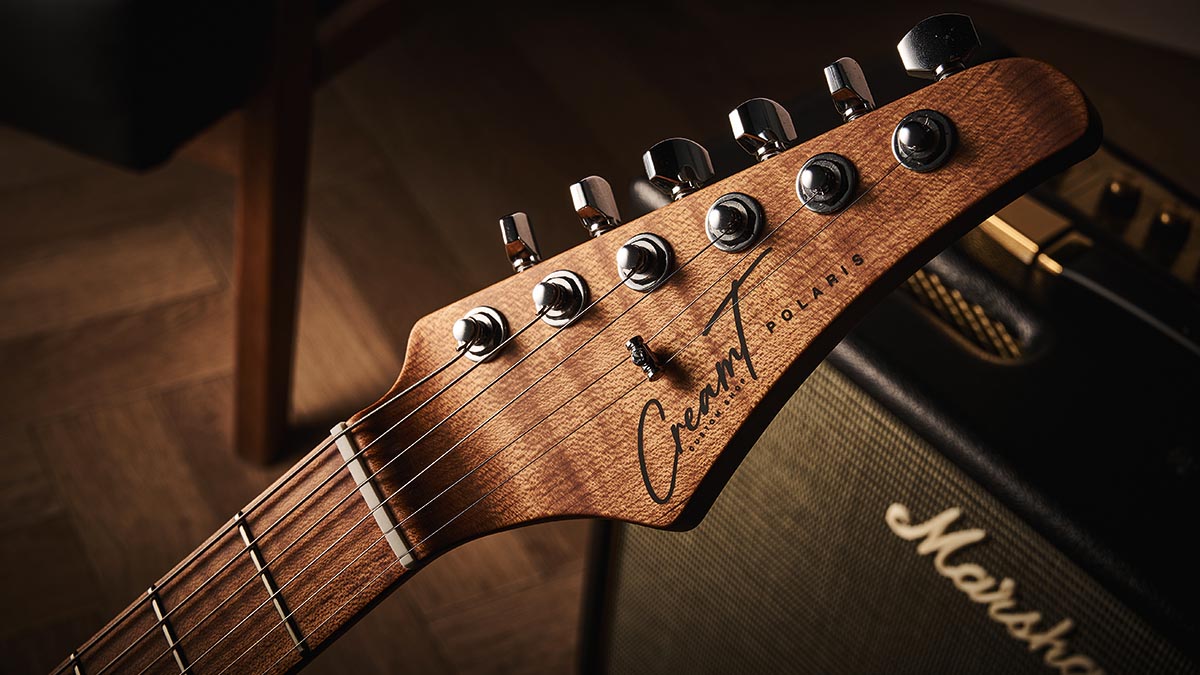
Rather like the style and build, there are no surprises to the sounds we hear but no disappointments, either, dishing up a very flavoursome pair of Strat-y single coils with plenty of woody depth and sparkle in the highs. Whether it’s the feel of the neck or these sounds alone, there’s a very appealing vintage-vibe going on here without the sometimes ear-wearing spike that some Strats can veer towards.
There’s plenty of kick from the bridge humbucker, too, and many of us could easily just use this pickup on a gig, even though a subtle treble bleed circuit on the volume control might just help to keep some of that sizzle as you pull it back. It also splits very well; the slug coil has a bit of older humbucking ‘honk’ that’s far from anaemic or overly thin sounding.
That ‘Hot’ switch is handy for a fast-action solo voice without touching the five-way selector and, as ever, there’s a subtle volume and sizzle boost as it’s engaged. Like we said, it’s not really bringing anything new to the table, but there’s very little, if anything, we’d change.
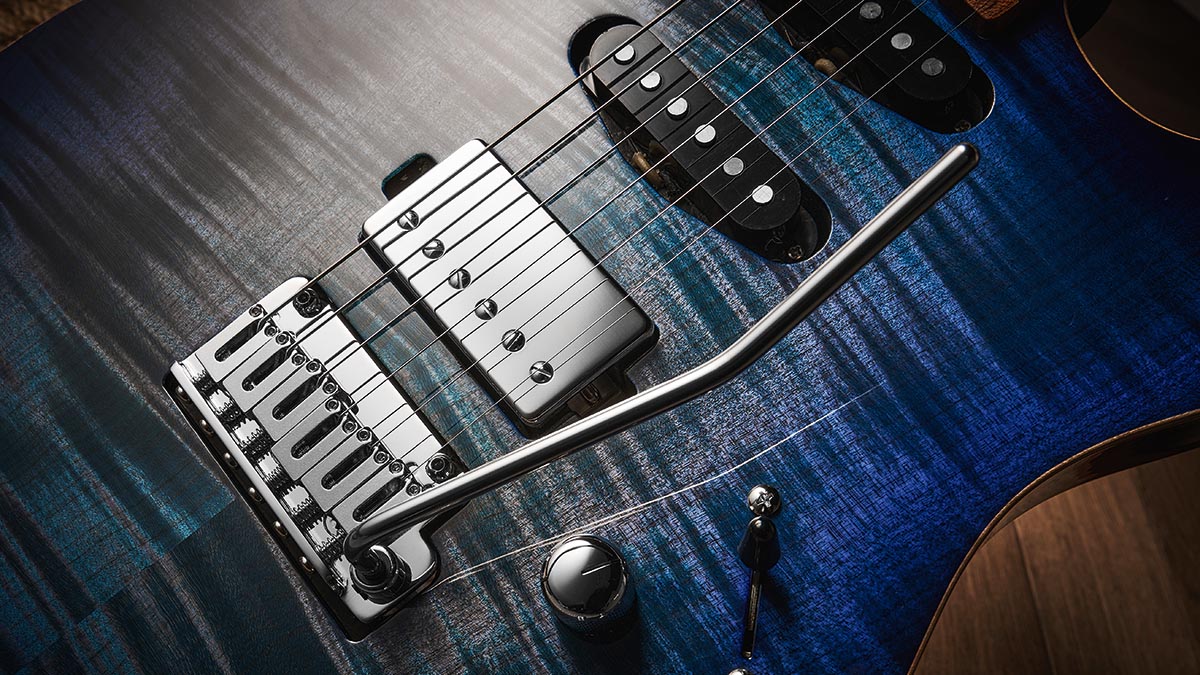
Verdict
It is a little odd that we refer to what is effectively a four-decade-old design as ‘modern’. In terms of the neck shape, which is relatively deep for the style, and the voicing of the guitar, the Polaris ‘Classic’ might have been a better name.
In terms of the neck shape, which is relatively deep for the style, and the voicing of the guitar, the Polaris ‘Classic’ might have been a better name
Many of us might feel like it’s a guitar we’ve played back in the day before the style was ‘hijacked’ by more modernist makers with their shred-aimed thin necks, with or without carbon fibre reinforcement, and stainless-steel frets.
Either way, it’s hard to find fault here, and while £2.5k ain’t cheap in anyone’s book you only need to check the prices of similar styles from USA makers such as Tom Anderson and Suhr to see that it’s very attractive.
Of course, the platform has plenty of potential. Some classy – or brasher – opaque colours might be welcome for those of us who have seen enough figured maple. And lightly aged nickel hardware might suit the ‘Classic’ style, too. But, hey, that’s all in the future. For now, it’s another string to Cream T’s bow – we can’t wait to try the pickup-swapping version either. A rising star, indeed!
Specs
- PRICE: £2,799 (inc gigbag)
- ORIGIN: UK
- TYPE: Double-cutaway, solidbody electric
- BODY: Obeche with AAA thin maple top
- NECK: Quarter-sawn roasted maple, medium C profile, bolt-on
- SCALE LENGTH: 648mm (25.5”)
- NUT/WIDTH: Graph Tech Tusq/42.7mm
- FINGERBOARD: Roasted maple, 6mm black dot inlays (w/ blue Luminlay side dots), 254-356mm (10-14”) radius
- FRETS: 22, medium jumbo
- HARDWARE: 2-post Gotoh 510 vibrato, Gotoh rear-locking tuners – chrome-plated
- STRING SPACING, BRIDGE: 54mm
- ELECTRICS: Cream T Polaris covered humbucker (bridge) w/ Polaris single coils (middle & neck), 5-way lever pickup selector switch, master volume, master tone (with pull-switch coil-split for bridge humbucker), ‘Hot’ switch (direct out bridge pickup)
- WEIGHT (kg/lb): 3.21/7.1
- OPTIONS: Rosewood fingerboard, HSH pickup configuration. The Polaris will be available with pickup swapping (hardtail only) later this year. It can be custom-ordered as the ‘Crème de la Crème’ model with your choice of woods, hardware, custom inlays, stainless steel frets, etc (£POA)
- RANGE OPTIONS: Cream T’s other current models include the Aurora Custom (£2,499) and the Aurora BFGT2 (£2,999); both are available with or without pickup swapping
- LEFT-HANDERS: Not currently
- FINISHES: Sirius Blue (as reviewed), Antares Red, Black Hole Burst, Terra Burst – coloured gloss polyurethane body; satin natural acrylic neck
- CONTACT: Cream T

Dave Burrluck is one of the world’s most experienced guitar journalists, who started writing back in the '80s for International Musician and Recording World, co-founded The Guitar Magazine and has been the Gear Reviews Editor of Guitarist magazine for the past two decades. Along the way, Dave has been the sole author of The PRS Guitar Book and The Player's Guide to Guitar Maintenance as well as contributing to numerous other books on the electric guitar. Dave is an active gigging and recording musician and still finds time to make, repair and mod guitars, not least for Guitarist’s The Mod Squad.
